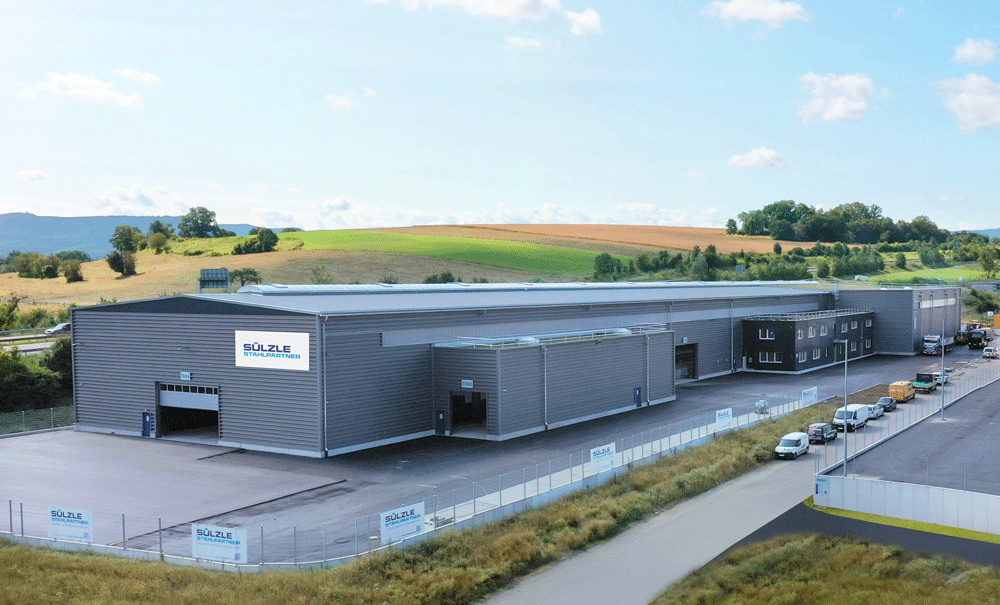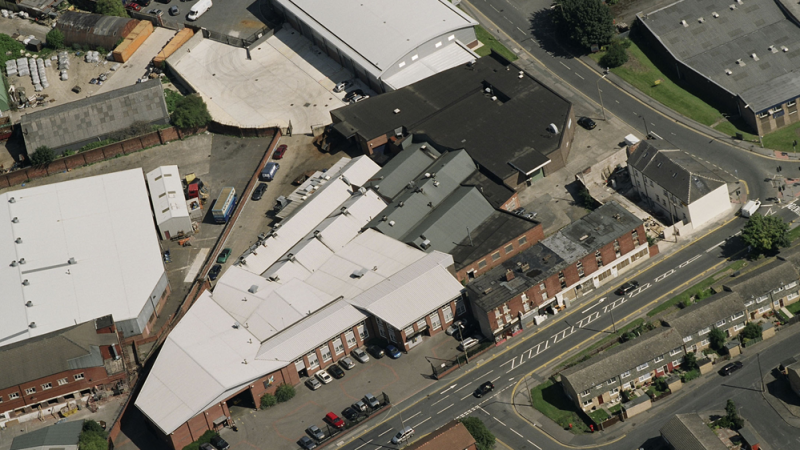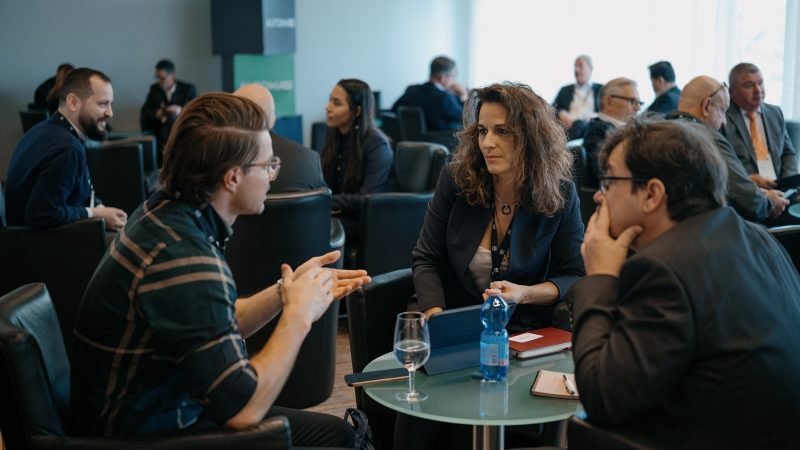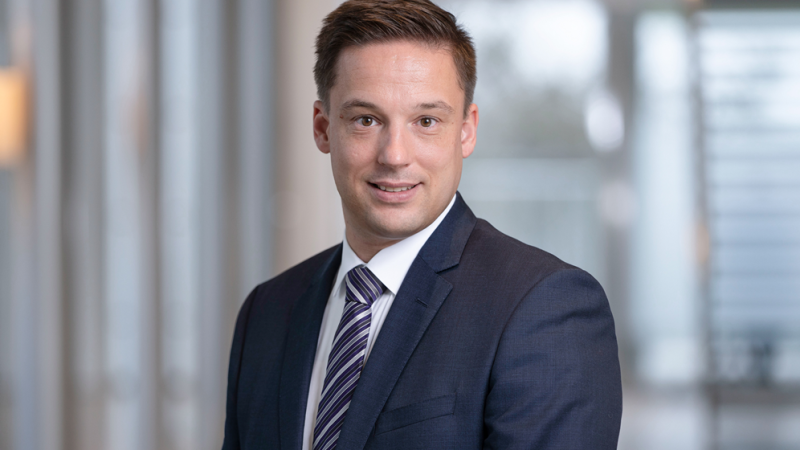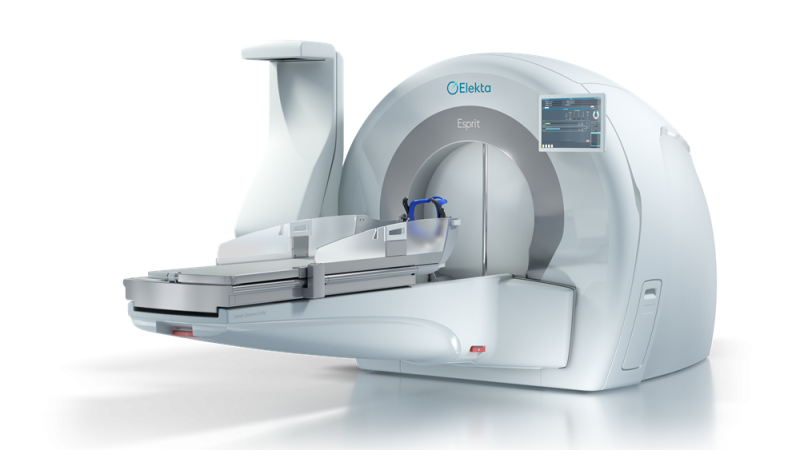What was founded in 1880 as a small forging company by Wilhelm Sülzle has developed over the century and under the skilful leadership of the founder’s descendants into a future-oriented, innovative group of companies with 29 locations in Germany and beyond.
Although Sülzle is firmly rooted in the steel business, in recent decades the company has also diversified into other areas such as energy, dewatering and plant engineering, reflecting its commitment to innovation and its ability to adapt to new market developments.
Managing partner Heinrich Sülzle, a great-grandson of the founder, says that the family spirit is firmly anchored in the company. He looks back on the years of business growth achieved under the leadership of his generation.
“The early death of my father in 1988 meant that my three siblings and I took over the company at a young age. Although this was a challenge, we managed to steer the company in the right direction – we have grown steadily over the last 25 years and employ over 1,000 employees today.”
“Our headquarters are still in Rosenfeld in Baden-Württemberg, where our great-grandfather founded the company, but our group of companies is now spread across Germany, with a branch in France.”
The modern SÜLZLE Group consists of numerous subsidiaries, most of which specialise in steel trading and steel processing into products such as mesh, reinforcement steel, reinforcement cages, drawing meshes and profile steel, which are primarily supplied to the construction and processing industries. The Group is also active in the areas of plant engineering, building technology and environmental technology.
Steel is therefore still the centrepiece of the SÜLZLE company. “Whether precision production of reinforcement cages, professionally machined profile steel or simply an urgently needed overnight delivery of steel components to a construction site – we put our knowledge and expertise to work for our customers,” says Heinrich Sülzle.
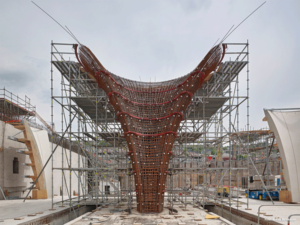 Sustainable steel
Sustainable steel
He emphasises that sustainability is firmly anchored in the company’s philosophy: “We have a long tradition of commitment to the environment and society. We believe that only companies that fulfil their social, economic and ecological obligations can operate sustainably.”
Based on a clear sustainability strategy, the SÜLZLE Group is actively involved in several important organisations, such as the Alliance for Development and Climate and Responsible Steel.
Heinrich Sülzle points out that the company is systematically analysing and reducing its carbon footprint. These measures are part of a comprehensive strategy aimed at integrating sustainable solutions in all areas of the company and thus making a positive contribution to climate protection.
“The SÜLZLE Group is also regionally committed to sustainability and social issues, for example through the planting of a meadow orchard initiated by our trainees or the food bank project.”
Building with responsibility
With the growing trend towards sustainable construction, the use of sustainable, recyclable building materials is becoming more and more important. Steel is unrivalled in its recyclability, as it can be recycled an infinite number of times without any loss of quality. SÜLZLE Stahlpartner can now also offer its customers sustainable reinforcing steel with a clear carbon footprint.
The method for determining the footprint has been validated by TÜV and thus enables SÜLZLE to provide its customers with a declaration of the footprint. This makes the company a pioneer in the industry and sets new standards for responsible building. Heinrich Sülzle explains that the company has an impressive list of references, which includes some of the most important projects in Germany, such as the U5 underground railway in Hamburg.
“For the first time, CO2 emissions have been made a key evaluation criterion during construction, taking into account the entire supply chain, with the aim of reducing 70% of conventional CO2 emissions,” he says, adding that SÜLZLE’s dedicated efforts to introduce CO -2 reduced rebar with clear CO2 limits helped win the contract.”
Another impressive project was the Stuttgart 21 railway station, where the terminus station with its 17 tracks was to be converted into an underground through station with 16 tracks. This complex architectural project demonstrated SÜLZLE ‘s ability to supply special steel solutions – SÜLZLE set up its own S21 bending shop at the nearby site in Denkendorf in order to be able to supply the large quantities required.
And last but not least, a smaller but highly symbolic project that demonstrates the international reach of SÜLZLE ‘s expertise was the multi-storey car park at London’s Wembley Stadium, for which the company supplied 28 tonnes of reinforcing steel.
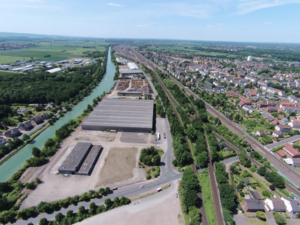 Family values
Family values
The question is obvious: what has fuelled the company’s growth in a highly competitive European steel market dominated by many large companies? Heinrich Sülzle says: “The family values, the common goals and the philosophy shine through. We are a strong family that strives to run the company for the benefit of our employers, our customers and the environment.”
“When business expansion began in 2000 with the first location outside our home country, soon to be followed by others, we realised that it was necessary to create a uniform corporate culture throughout the Group. To this end, we worked together with all our employees to define the corporate mission statement and core values that form the basis of our activities. These values are not only presented on the company’s website, but are deeply rooted in our corporate culture and characterise our dealings with customers, employees and suppliers.”
“With our century-long history, sustainability is firmly anchored in our business, otherwise we would not have survived and flourished for so long. We are forward-thinking and ready to adapt to market changes; we look ahead and do the right things at the right time.”
The company’s market position clearly shows that SÜLZLE has coped well with the economic fluctuations. Although the current economic situation in Germany is challenging, the company sees crises as an opportunity for change.
“As a family business, we have a long-term perspective; we don’t just look at the next quarter, but reinvest the profits in the company’s growth,” emphasises Sülzle, adding that the focus is on strategic and meaningful projects and not on expansion for its own sake.
“We are aiming for stable growth. Together with our employees, we will continue to develop our company for the markets of the future, as the next generation is now joining the company and is ready to take the helm.”
